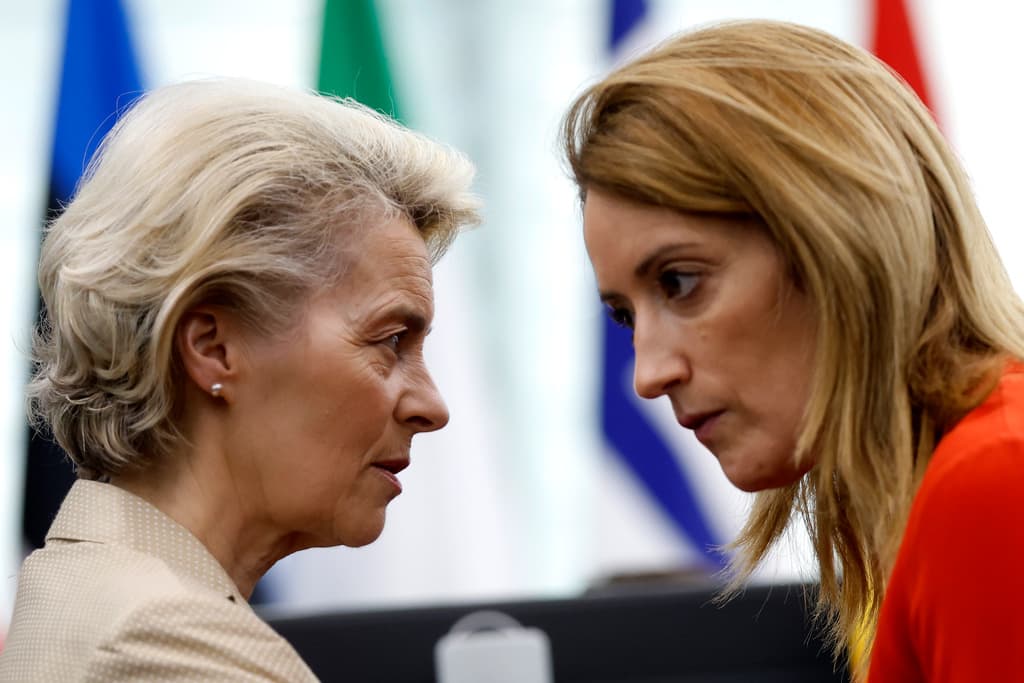Acute crisis meetings await in the EU if the votes are not enough for Ursula von der Leyen.
The drama is great when the German puts her career on the line in a single decisive vote.
When the newly elected EU Parliament votes on Thursday on whether von der Leyen should continue as President of the EU Commission, the margins are small. The number of members on the edge has increased to both the right and the left.
Her closest supporters within the conservative party group EPP are pushing hard for the need for stability in the EU, considering Russia's war and the upcoming presidential election in the USA.
A no to von der Leyen is portrayed as a victory for Hungarian Prime Minister Viktor Orbán and like-minded individuals, who want a more withdrawn Commission.
Right or more right?
On paper, there is a sufficient alliance behind von der Leyen with members from EPP, liberal RE, and social democratic S&D. Even The Greens are leaning towards giving their support.
Members from mainly S&D and The Greens are still in a tricky situation. Supporting von der Leyen also means supporting a significant dose of right-wing politics, for example, on migration and economy.
If they do not support her, they risk getting even more right-wing politics under another Commission President instead – especially if the latter chooses to seek support from the far-right.
Crisis meeting in the summer
If von der Leyen does not get a yes from at least 361 members, the EU countries' heads of state and government will be forced to hold a crisis meeting within a month to find another candidate for the job.
No obvious alternative exists. The former head of the European Central Bank, Mario Draghi, has been frequently mentioned over the years – but does not belong to the dominant EPP and will also turn 77 this autumn.
Right-wing leaders like Croatian Andrej Plenkovic or Greek Kyriakos Mitsotakis have been discussed, but will hardly have an easier time getting elected than von der Leyen.
Perhaps EU Parliament's Maltese President Roberta Metsola can be popular enough – but has never even sat in a government.
Ursula von der Leyen (born 1958) had a background as a family, labor market, and defense minister in Germany when she was elected as the new President of the EU Commission in 2019, with a narrow margin of just nine votes.
Since then, she has emerged as the EU's obvious front figure, frequently applauded for her leadership during the coronavirus pandemic and Russia's war in Ukraine. Different political sides have simultaneously criticized her for doing both too much and too little in climate policy and for being both too hard and too yielding when it comes to member states' handling of democracy and fundamental values.






